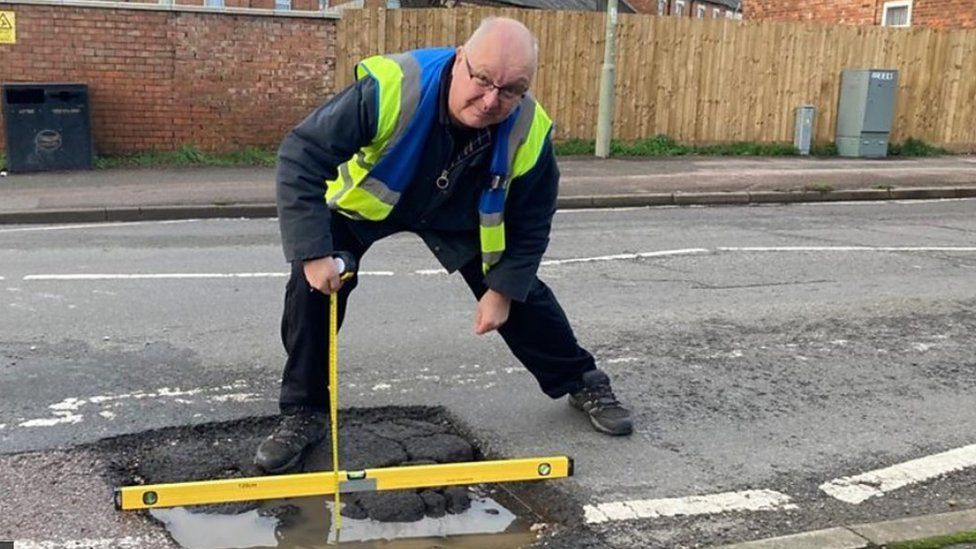Uncategorized
UK Scientists Tackle Pothole Crisis with Innovative Solutions and Technology
The United Kingdom is facing a surge in pothole-related issues, with reports and damages reaching a five-year high. Local government data reveals that almost 630,000 potholes were reported across England, Scotland, and Wales from January to November 2023. The AA estimates that these potholes may have cost UK drivers up to £500m in repairs.
Amidst this crisis, scientists are exploring advanced solutions, including self-healing roads and resilient materials, to combat the increasing pothole problem exacerbated by climate change. The fluctuating temperatures and wet weather conditions are contributing to the rapid deterioration of road surfaces.
Roger Harding, director of the campaign group Round Our Way, highlights the severity of the issue, stating that potholes pose a significant risk to drivers, cyclists, and pedestrians alike. The Local Government Association acknowledges the concerns and calls for more consistent funding to address the £14bn backlog in road repairs.
The Department for Transport is taking steps to address the issue with an additional investment of £8.3bn, intending to resurface over 5,000 miles of roads across the country.
The AA reports 631,852 pothole-related incidents last year, indicating the widespread impact of the problem. Potholes not only affect motorists but also pose a danger to cyclists and other road users.
To tackle the pothole menace, researchers at the University of Cambridge and other institutions are working on innovative projects. These include creating a digital map to locate cracks and holes, developing self-healing roads, and experimenting with durable materials. One approach involves using data from modern car sensors to map the country’s road defects in a virtual reality simulation, providing a comprehensive overview of the pothole landscape.
In collaboration with Leeds and Liverpool Universities, Cambridge is researching the use of robots for road repairs. Professor Ioannis Brilakis of Cambridge University describes a robotic van equipped to fix common road issues and repaint lane markings. A robot developed by Liverpool University, which employs AI to detect potholes, will soon be tested on public roads in Hertfordshire.
Another groundbreaking development is the work on self-healing concrete, incorporating capsules within the road surface that release a healing agent when cracked. Researchers are also investigating thermal properties of road materials to maintain constant temperatures, reducing the formation of potholes.
Dr. Benyi Cao of the University of Surrey, in partnership with National Highways, is experimenting with geothermal energy to control road surface temperatures. The project involves ground source heat pumps and microcapsules to capture energy from the soil, aiming to cool roads in summer and warm them in winter.
As the link between climate change and road conditions becomes more evident, innovative measures are essential. Dr. Cao emphasizes the need for new methods to adapt our infrastructure to current climate challenges. The concerted efforts in improved road maintenance, cutting-edge materials, and technology, along with broader climate change mitigation strategies, are crucial in addressing the pothole crisis and ensuring safer roads for all.













